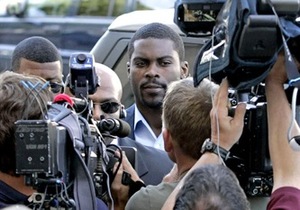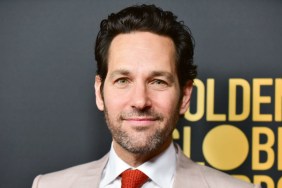
In the opening credits of each episode, Vick tells us he’s on a mission to restore his “family’s good name.” If I were his publicist, I would’ve advised him differently: Your mission should be to end dog fighting and prevent animal cruelty; if you act with integrity, your good name will follow. Needless to say, neither Vick nor his publicist asked my opinion.
I’m tuning into “The Michael Vick Project” because if there is true remorse, I want to see it. I’m frequently asked whether I’ve forgiven him yet, and no matter what my answer is, I want to be able to back it up with real knowledge of his words and actions. And so I watch.
Whereas Episode 1 mainly recounted the events leading up to Vick’s incarceration, Episode 2 is essentially a montage of family monologues. Most are laments over what Vick’s absence will mean to his loved ones. I’m sure it’s no fun to have your brother or your boyfriend go to prison. Still, the tone felt a little off.
Fiancée Kijafa doesn’t come right out and say she’s angry with the judge who sentenced Vick, but her disbelief and indignation at the length of his sentence is evident. She says she kept expecting to hear that the 23 months was probation or home confinement – not prison.
As I watched, I couldn’t help but wonder, where is your anger at Vick – the father of your children? As a mother, how are you not horrified at the images of innocent beings so violently maimed and tortured? Were you not sickened by the degree of cruelty he inflicted? Do the images of the bloodied and broken animals not haunt you?
This is not an indictment of Kijafa. But the absence of anger is troubling, as is the complete lack of compassion for innocent lives. If I found out a friend or family member was not only capable of – but enjoyed – such violence, I believe I’d think twice about our relationship. I don’t know that I’d let him around my children, even if he was their father.
There is a lot of talk from Vick, Kijafa, and his brother Marcus about how difficult prison was for him. Lots of talk about loss of freedom and how much he had to overcome. There seems to be no recognition by any of the three that the injustice is not against Vick – he’s not a POW being held without a trial or a man wrongly convicted. He tortured and killed for a period of six years, and he is now paying for his crimes.
Kijafa expresses genuine disbelief that Vick, five months into his sentence, was not permitted to attend his grandmother’s funeral. But since that’s what prison is – not being able to do what you want to do when you want to do it – it was hard to muster much sympathy. Inmates forfeit their freedom because they’ve chosen to act horrifically. Vick is the criminal, not the victim.
Vick does mention that he wants to steer others away from the path he chose, and it’s followed by a scene of an embrace with a representative from The Boys and Girls Club of Virginia. But all the talk from family and friends about what a good guy Vick is doesn’t convince me. In fact, they’re trying so hard, it has the opposite effect. Why must they keep insisting? What is Vick doing to restore his good name?
The safe, sympathetic depictions and the edited sound bytes feel hollow and disingenuous. Yet the truth does emerge in subtle, unrehearsed ways: Coach Tommy Reamon says that Vick told him he only wants one thing, and that is to play football again.
Now, there’s something I believe.
– Leslie Smith
Did you watch? If so, please post a comment.




